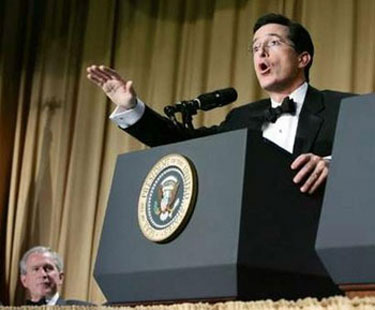In a previous post I mentioned that my favourite math of all time is the '
Drake equation' that calculates the number of potential intelligent species sending out radio signals per galaxy. In that post I mentioned that when I ran the numbers I would get an answer in the hundreds or thousands, and this prompted a minor debate between Richard and I over the variables.
Mea Culpa. I am saddened to point out that when I run them with a clear head, even my optimistic calculations still yield just one or two for our galaxy, and not the teeming multitude that I had thought.
Related to the Drake equation is the
Fermi Paradox, which was a speculation on the presence of intelligent life in the galaxy that preceded Drake's calculation by two decades.
I've culled the following definition from an article whose response to the paradox is not only 'radical' but I think typically anthropocentric in it's limited vision.
Sometime in the 1940s, Enrico Fermi was talking about the possibility of extra-terrestrial intelligence with some other physicists. They were impressed that life had evolved quickly and progressively on Earth. They figured our galaxy holds about 100 billion stars, and that an intelligent, exponentially-reproducing species could colonize the galaxy in just a few million years. They reasoned that extra-terrestrial intelligence should be common by now. Fermi listened patiently, then asked, simply, "So, where is everybody?" That is, if extra-terrestrial intelligence is common, why haven't we met any bright aliens yet? This conundrum became known as Fermi's Paradox.
AR: I think Drake's equation coupled with modern astronomical theory solves the paradox for Fermi;
A. The premise is incorrectly understood, I suspect a function of 1920's astronomy. Intelligent life in a the universe is extremely likely given the staggeringly large number of stars that would be ideal for life to generate. However, Drake's equation shows that at any given time a galaxy of roughly our size would have only 1-5 intelligent species capable of radio transimission. So while the universe itself could be teeming with life, our own neighbourhood - the milky way, could well be barren save for us, and even if we lucked out and the number is higher, there is another problem;
B. Even if the galaxy is teeming with life, it is still a very, very, very long way away, and light speed is still the speed limit for getting any place. If you want to calculate how many alien species develop technologies that violate the light speed barrier so that they can buzz Kansas farmers at will, be my guest, but the odds on favourite way for us to discover intelligent life in the galaxy is with a radio antenna, not UFO hunters.
So there is my bashing of Fermi's paradox, but the real fun is what follows;
"I suggest a different, even darker solution to the Paradox. Basically, I think the aliens don't blow themselves up; they just get addicted to computer games. They forget to send radio signals or colonize space because they're too busy with runaway consumerism and virtual-reality narcissism. They don't need Sentinels to enslave them in a Matrix; they do it to themselves, just as we are doing today. Once they turn inwards to chase their shiny pennies of pleasure, they lose the cosmic plot. They become like a self-stimulating rat, pressing a bar to deliver electricity to its brain's ventral tegmental area, which stimulates its nucleus accumbens to release dopamine, which feels…ever so good."
You see, Mr. Miller is an assistant professor at the university of New Mexico in
Psychology, so naturally the premise for why we don't see more intelligent species in the galaxy visiting us is a psychological one, that the aliens fail to build radio antennas because they become decadent, selfish creatures addicted to
pleasure.
Here is Miller again;
"I suspect that a certain period of fitness-faking narcissism is inevitable after any intelligent life evolves. This is the Great Temptation for any technological species—to shape their subjective reality to provide the cues of survival and reproductive success without the substance. Most bright alien species probably go extinct gradually, allocating more time and resources to their pleasures, and less to their children. They eventually die out when the game behind all games—the Game of Life—says "Game Over; you are out of lives and you forgot to reproduce."
AR: So the suggestion is 'they forget to reproduce'. Cuz, you know, we see that all the time. Creatures everywhere reach a stable population, and then, you know,
forget to reproduce. Honey I don't feel like sex,
because I have an iPod!
I'd say Miller's insight falls somewhere short of genius. But we do get further insight to both his technophobia and his erotophobia here;
"Heritable variation in personality might allow some lineages to resist the Great Temptation and last longer. Some individuals and families may start with an "irrational" Luddite abhorrence of entertainment technology, and they may evolve ever more self-control, conscientiousness and pragmatism. They will evolve a horror of virtual entertainment, psychoactive drugs and contraception. They will stress the values of hard work, delayed gratifica tion, child-rearing and environmental stewardship. They will combine the family values of the religious right with the sustainability values of the Greenpeace left. Their concerns about the Game of Life will baffle the political pollsters who only understand the rhetoric of status and power, individual and society, rights and duties, good and evil, us and them.
This, too, may be happening already. Christian and Muslim fundamentalists and anti-consumerism activists already understand exactly what the Great Temptation is, and how to avoid it. They insulate themselves from our creative-class dreamworlds and our EverQuest economics. They wait patiently for our fitness-faking narcissism to go extinct. Those practical-minded breeders will inherit the Earth as like-minded aliens may have inherited a few other planets. When they finally achieve contact, it will not be a meeting of novel-readers and game-players. It will be a meeting of dead-serious super-parents who congratulate each other on surviving not just the Bomb, but the Xbox."
AR: If the 'The Great Temptation' rings apocaplyptic I don't think that is an accident. Neither is the suggestion that Christian and Muslim fundamentalists will be the forces that end up prospering after the 'The Great Temptation' wipes out everyone else.
What Miller has really done here is make the best case possible for the fundamentalists, albeit in a language sideways from reality. The 'Great Temptation' where a species becomes narcisistically enthralled by capitalist goods dovetails with the both the conservative and apocalyptic right crowd. At its core, it is a fear that if you give people the freedom to pursue their own wishes they will choose idle pleasure over stoic labour. Pleasure then as an end, is to be eschewed as being non-productive, and discouraged. Hence, don't have sex for pleasure because it is unproductive, and etc. etc. for the whole conservative social agenda, only Miller has wrapped it all up in a fanciful tale of how we should adopt this mindset to avoid extinction, and ultimately become 'dead-serious super-parents'.
I wonder if Fermi's Paradox may be a sort of philosophical Rorsharch test whereby asking an academic to solve the paradox reveals more about the academic than about the paradox.
In this case, it's revealed a pleasure fearing conservative longing for an escape from his iPod.
 So the Oilers in the Stanley Cup Finals, eh?
So the Oilers in the Stanley Cup Finals, eh?








